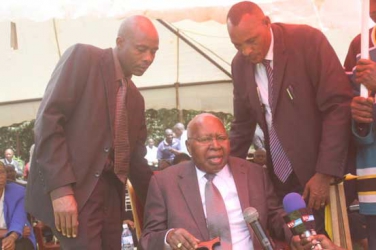×
The Standard e-Paper
Stay Informed, Even Offline

NAIROBI,KENYA: It was a rare but truthful admission from the very man who had been charged with the responsibility of planning for the country’s money. And the action did not go unpunished.
In 1998, Finance Minister Simeon Nyachae, the son of the former powerful colonial chief, Musa Nyandusi, shocked the nation with a rare admission that Kenya’s economy was in intensive care unit (ICU).